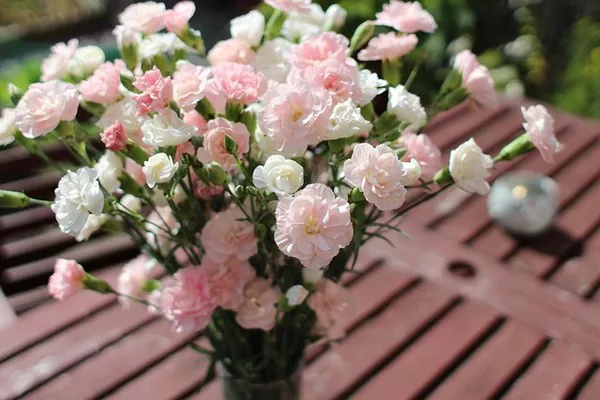Carnation flowers, scientifically known as Dianthus caryophyllus, have long been admired for their vibrant hues and delicate, ruffled petals. However, these blooms are not merely decorative; they hold a rich history of cultural significance and are employed in various applications beyond ornamental purposes. In this article, we delve into the diverse uses of carnation flowers, exploring their cultural, culinary, and therapeutic roles that extend far beyond their aesthetic appeal.
Cultural Significance:
Carnation flowers have a deep-rooted cultural significance in various societies, symbolizing love, fascination, and distinction. In many countries, carnations are often associated with Mother’s Day, expressing admiration and love for mothers. Different colors convey distinct messages – red carnations symbolize deep love and admiration, while white ones are associated with purity and luck.
During special occasions such as weddings and religious ceremonies, carnations are frequently incorporated into decorations and bouquets, signifying the celebration of love and spirituality. In some cultures, carnations are also used in funeral arrangements, representing a symbol of love and remembrance for the departed.
Culinary Uses:
Beyond their role in cultural traditions, carnation flowers have found a place in the culinary world, adding both visual appeal and unique flavors to various dishes. One of the most notable culinary applications is the use of carnations in the preparation of floral-infused beverages and desserts.
Carnation petals, with their subtly sweet and spicy taste, are often candied or used to infuse liquids, providing a distinctive flavor profile. In some cultures, carnation petals are used to create floral syrups, enhancing the taste of beverages like teas, lemonades, and cocktails. The vibrant colors of the petals also make them an attractive garnish for salads, cakes, and pastries, adding a touch of elegance to culinary creations.
Apart from being a decorative element in food, carnations are also utilized in the production of certain traditional dishes. In Chinese cuisine, for example, dried carnation petals are incorporated into soups and stews for both flavor and visual appeal.
Therapeutic Uses:
Carnation flowers have been recognized for their potential therapeutic benefits, leading to their inclusion in various traditional medicine practices. The flower’s essential oil, extracted from the petals, is believed to possess anti-inflammatory and antibacterial properties. This has led to the incorporation of carnation essential oil in aromatherapy and massage oils, aiming to promote relaxation and alleviate stress.
In some traditional herbal remedies, carnation flowers are used to make infusions that are believed to aid digestion and alleviate stomach discomfort. The petals are also thought to have diuretic properties, promoting kidney health. While these therapeutic uses are largely rooted in traditional practices, modern research continues to explore the potential health benefits of carnation flowers.
Cosmetic and Fragrance Industry:
The distinct and pleasant fragrance of carnation flowers has made them a sought-after ingredient in the cosmetic and fragrance industry. Carnation essential oil, with its sweet and spicy aroma, is often utilized in the production of perfumes, lotions, and other skincare products. The subtle floral notes contribute to the overall composition of fragrances, providing a sophisticated and timeless appeal.
The petals of carnation flowers are also used in the manufacturing of potpourri and sachets, offering a natural and aromatic way to freshen up living spaces. Additionally, extracts from carnation flowers are incorporated into cosmetic products for their potential skin-soothing and anti-aging properties.
Scientific Research:
In recent years, scientific research has uncovered new potential applications for carnation flowers. Studies have explored the antimicrobial properties of carnation extracts, suggesting their potential use in the development of natural preservatives for food and cosmetic products. The flower’s rich composition of bioactive compounds, including flavonoids and phenolic acids, has attracted attention for its possible antioxidant properties.
Furthermore, genetic modification techniques have been employed to enhance certain characteristics of carnation flowers, such as color, fragrance, and longevity. These advancements not only contribute to the ornamental appeal of carnations but also open up new possibilities for their use in various industries.
See Also Choosing the Perfect Flower Color for a 70th Birthday Celebration
Conclusion:
Carnation flowers, often admired for their aesthetic beauty, reveal a multifaceted nature that goes beyond mere decoration. With a rich history of cultural significance, culinary applications, therapeutic uses, and contributions to the cosmetic and fragrance industry, carnations showcase their versatility in numerous domains. As ongoing research continues to uncover their potential benefits, the allure of carnation flowers persists, making them a timeless and cherished element in various aspects of human life.


